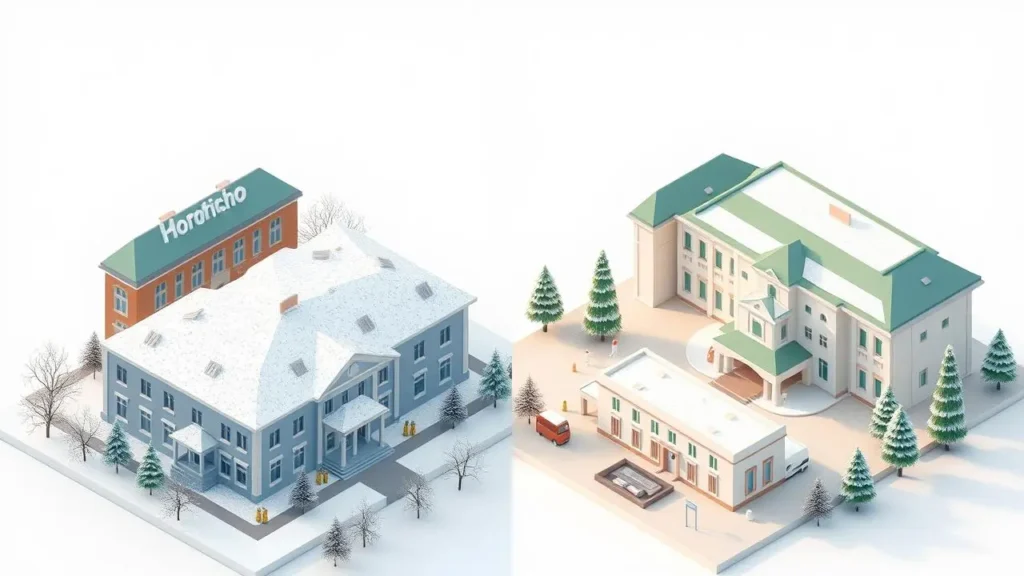Affordable Universities in Russia: Tuition Fees, Scholarships, and Living Costs
- 1 Affordable Universities in Russia: Tuition Fees, Scholarships, and Living Costs
- 1.1 Busting Some Myths About Russian Education Costs
- 1.2 Breaking Down Tuition Fees (It’s Not Always What You Think)
- 1.3 Navigating Scholarships and Grants (More Than Just Government Options)
- 1.4 The Real Deal on Living Costs (Beyond Moscow and St. Pete)
- 1.5 Finding Your Fit: Choosing the Right Affordable Russian University
- 1.6 FAQ
- 1.7 Wrapping It Up
Let’s be honest, when you think about studying abroad, especially in a place like Russia, your first thought might not be “affordable.” Images of sprawling, historic cities like Moscow or St. Petersburg probably pop into your head, conjuring notions of eye-watering living expenses and prohibitive tuition fees. And yeah, sure, those cities can be pricey, absolutely. But here’s a little secret I’ve picked up over the years, digging into this stuff: studying in Russia, on the whole, is often surprisingly budget-friendly, particularly when you look beyond the obvious headline figures for things like, well, *affordable universities in Russia*. It’s a different ballgame than, say, the UK or the US, and often, you get a seriously high-quality education for a fraction of the cost. That’s what we’re diving into today – breaking down the real costs and showing you how accessible a Russian education can truly be.
Busting Some Myths About Russian Education Costs
Okay, so the myth persists: studying in Russia will cost you an arm and a leg. I hear it all the time. People assume it’s like going to university in Western Europe or North America – just loads of money disappearing into the ether. But that’s not the full picture, not by a long shot. For starters, state-funded universities, which are numerous and frankly, often excellent, have tuition fees that are… well, they’re just *different*. Much lower than you might expect for similar programs elsewhere. And yes, while Moscow and St. Pete will hit your wallet harder, there are brilliant universities scattered across this enormous country in cities where the cost of living is significantly less punishing. Think places like Novosibirsk, Kazan, or Tomsk. Life there is considerably cheaper, and the academic standards remain very high. It’s about looking beyond the surface, you know? Not just assuming the worst.
Another thing people often worry about is the visa cost or application fees piling up. And yes, there are fees involved, of course. It wouldn’t be bureaucracy without a few fees! But compared to the overall cost savings on tuition and living expenses over a three or four-year degree… honestly, they seem pretty minimal in the grand scheme of things. It’s like paying a small toll road fee to get onto a highway where the rest of the journey is free. Seems like a fair trade-off to me, depending on your situation, of course. The point is, don’t let initial perceptions of expense scare you off before you’ve done your homework. Because the reality, in my experience, is far more encouraging for budget-conscious students.
Breaking Down Tuition Fees (It’s Not Always What You Think)
Right, let’s talk numbers – the nitty-gritty of tuition. This is where Russia really starts to shine on the affordability front. While exact figures vary wildly based on the university, the program (humanities vs. engineering, for example), and whether you’re studying in Russian or English, you’re generally looking at something far more manageable than in many other popular study destinations. We’re often talking fees ranging from, say, $2,000 to $5,000 USD per year for a Bachelor’s degree. Some specialized or prestigious Master’s programs might go higher, maybe up to $8,000 or $10,000 annually, but that’s still remarkably competitive.
Compare that to average tuition costs in the US, which can easily hit $20,000-$40,000+ per year, even at state universities for out-of-state students. Or the UK, where international student fees often hover around £10,000-£20,000+ ($12,000-$24,000+) annually. See? It’s a massive difference. It almost seems… too cheap? Which, I suppose, is where some of the skepticism comes from. Is it too good to be true? Probably not. It’s just a different economic model, with significant state support for higher education. It’s a fact, actually, that the Russian government heavily subsidizes higher education, making it more accessible not just for its own citizens but for international students too. According to data from the Russian Ministry of Science and Higher Education in 2023, the average cost of a Bachelor’s program for international students was around $3,000-$4,000 per year, which is quite low by global standards.
Now, you might argue that the global ranking of some Russian universities isn’t as high as, say, Oxford or Harvard, and yeah, that’s fair. But rankings aren’t everything. For many fields, particularly in sciences, engineering, mathematics, and arts, Russian universities have a long, proud history and provide a rigorous, high-quality education. You’re getting solid academic value for your money, no doubt about it. Plus, let’s be a bit controversial – sometimes those top-tier university names are what you’re paying for, not necessarily a fundamentally different level of undergraduate teaching compared to a reputable but less famous institution elsewhere. Just food for thought.
Beyond the relatively low tuition fees, Russia offers some decent avenues for financial aid, which is always a welcome bonus, isn’t it? The most well-known route is the Russian government scholarship program, often managed through the Study in Russia website. These scholarships are competitive, naturally, but they are pretty generous if you get one, often covering tuition fees entirely and sometimes even including a small monthly stipend. Applying involves a separate process, usually online, and you need to meet specific criteria based on academic merit and sometimes quotas for different countries.
But don’t stop there! This is where it pays to dig a little deeper. Many individual Russian universities offer their own scholarships or grants for international students, especially for Master’s or PhD programs, or for specific fields they want to promote. These aren’t always widely advertised, so it requires you to actively check the international student sections of university websites that interest you. Sometimes these are partial tuition waivers, sometimes they’re based on research proposals, but they exist and they can make an affordable education even *more* affordable. I remember hearing from a student who found a small departmental grant at a university in Siberia that covered a good chunk of his living costs – something he’d never have found just looking at the main government site. It really highlights the need to explore all the nooks and crannies.
And hey, don’t forget external sources. Depending on your home country, there might be bilateral agreements with Russia or specific foundations offering scholarships for students wishing to study there. It’s a bit of a scavenger hunt, frankly, but one that can yield serious rewards. So, yes, while securing a government scholarship is the dream for many, remember there are other fish in the sea when it comes to funding your studies.
The Real Deal on Living Costs (Beyond Moscow and St. Pete)
Okay, let’s talk about daily life – the rent, the food, getting around. This is often the biggest variable, and as I hinted earlier, where you choose to study makes a HUGE difference. Living in Moscow or St. Petersburg? Yeah, it’s comparable to many major European cities. Rent will be the killer, followed by maybe eating out frequently. You’re probably looking at $600-$1000+ USD per month, depending on your lifestyle and accommodation type (dorm vs. shared apartment). That can add up, clearly.
But step outside those two giants, and the picture changes dramatically. In many regional cities – places like Kazan, Nizhny Novgorod, or even smaller university towns – your monthly expenses can easily drop to $300-$500 USD. Seriously. Dormitory accommodation is often very cheap, sometimes as low as $30-$50 per month (I know, right?!), though the quality can vary, let’s be real. Food is generally affordable, especially if you cook for yourself and shop at local markets. Public transport, like the metro or buses, is incredibly cheap compared to Western standards. You can ride the Moscow metro for less than a dollar a trip, and it’s even cheaper elsewhere. What other major global city can boast that?
So, can you live cheaply? Absolutely, if you’re savvy. Avoid tourist traps, learn a few basic Russian phrases (it helps!), and embrace student life which, universally, tends to be good at making a budget stretch. My own experience, though not as a student there, visiting friends who were studying outside the capital, just showed me how much further your money goes. It really opened my eyes. It begs the question, doesn’t it: are you studying for the city’s nightlife or for the degree? For many, prioritizing the academic opportunity in a more affordable city just makes more sense financially.
Finding Your Fit: Choosing the Right Affordable Russian University
So, you’re convinced affordability is possible. Great! But choosing the *right* university is more than just picking the cheapest one. You need to consider the program quality, the reputation in your field, the city’s vibe, and frankly, where you can see yourself living for a few years. Don’t just fixate on the dollar signs (or ruble signs!). Research universities known for your specific subject. Russia has particular strengths in certain areas – physics, mathematics, engineering, ballet, classical music, medicine – so lean into those if they align with your interests.
Look at universities in different regions. Want a big city feel without the Moscow/St. Pete price tag? Consider Novosibirsk State University or Kazan Federal University. Prefer something smaller, perhaps more focused? There are plenty of excellent, older universities in cities you might never have heard of, offering niche programs. The trick is research, research, research. Check their program catalogues, look at faculty profiles, and if possible, try to connect with current or former international students (LinkedIn or student forums can be great for this). They’ll give you the real lowdown, you know? The unvarnished truth about living and studying there.
And hey, think about the language. Many programs are taught in Russian, which is fantastic if you’re willing to learn (many universities offer preparatory language courses, usually for a year). But there are also an increasing number of programs taught entirely in English, particularly at the Master’s level. That obviously opens doors if the language barrier is a concern. It’s about finding that sweet spot between affordability, academic quality, and personal fit. For more insights into specific university programs and student life, you might find our guide to student accommodation options helpful.
FAQ
Q: Do I need to speak Russian to study there?
A: Not always! While knowing some Russian definitely helps with daily life and opens up more program options, many universities now offer full degree programs taught in English, especially at the Master’s level. But honestly, even basic Russian goes a long way outside the classroom.
Q: How complicated is the application process?
A: It can feel a bit daunting, for sure. It usually involves submitting academic documents, sometimes passing entrance exams (or interviews), and then sorting out the visa. Applying for a government scholarship adds another layer. My best advice? Start early, be meticulous with paperwork, and don’t be afraid to reach out to the university’s international office – they’re usually there to help, even if responses can sometimes be a little slow.
Q: Is student accommodation (dormitories) always the cheapest option?
A: Almost always, yes. University dorms are significantly cheaper than renting private apartments, even shared ones. The quality varies massively from place to place, so manage your expectations, but if your priority is saving money, the dorm is probably your best bet. Plus, it’s a great way to meet other students, both Russian and international.
Wrapping It Up
So, there you have it. Studying in Russia for many, perhaps most, international students is a genuinely affordable option. It requires research, a willingness to look beyond the obvious, and perhaps a bit of adventurous spirit. The tuition fees are low, especially compared to Western alternatives, and while living costs vary, they are very manageable outside the two biggest cities. Scholarships exist, though they require effort to secure.
My personal take? If you’re looking for a quality education without racking up crippling student debt, and you’re open to experiencing a unique and fascinating culture, Russia is absolutely worth considering. Don’t dismiss it based on assumptions. Dive in, do your homework, and you might just find the perfect, affordable university fit for you.






